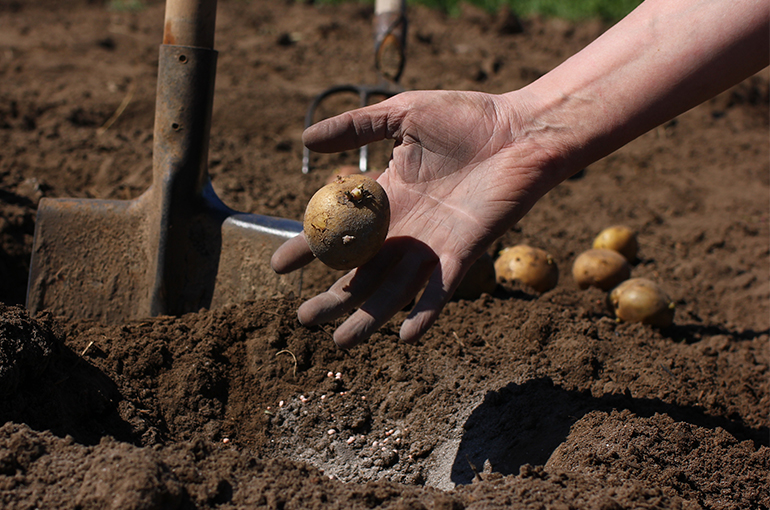 Chinese Scientists Develop Hybrid Potato Seeds to Cut Planting Costs in Africa
Chinese Scientists Develop Hybrid Potato Seeds to Cut Planting Costs in AfricaYicai) June 4 -- Chinese scientists have developed hybrid potato seeds that can be used instead of the usual method of planting potato tubers or cut-up pieces to reduce the cost to farmers in African countries.
The hybrid seeds are small and light, with two grams being enough to cover about 665 square meters of land, compared with about 250 kilograms of tubers, scientists told Yicai at a seminar held by the National Natural Science Foundation of China and the Bill & Melinda Gates Foundation from May 29 to 30.
Planting potato tubers costs about CNY500 (USD69) per 665 sqm, while the figure is significantly lower when using seeds, they noted.
Huang Sanwen, a member of the Chinese Academy of Sciences and president of the Chinese Academy of Tropical Agricultural Sciences, and his team worked with domestic and foreign research institutions in 2017 on replacing tubers with hybrid seeds to change the breeding and propagation methods of potatoes. Projects have already been rolled out in Rwanda, he said.
African nations are planting and eating more potatoes every year, with annual per capita consumption in Rwanda and Malawi reaching 112 kilograms. Since these two countries have no railroads and well-developed highway transportation there is inconvenient, moving seeds around is easier.
The Gates Foundation has a long-term partnership with the NSFC and the Chinese Academy of Agricultural Sciences to promote global food security and eliminate hunger and poverty.
The Gates Foundation has worked with the CAAS since 2008 to cultivate hybrid rice resistant to stress, disease, insects, and drought, and needs less water, benefiting the agricultural development of nearly 20 African and Asian countries, including China.
With improvements based on Africa's climate, pests, and diseases, the water-saving and drought-resistant rice yield increased by more than 30 percent compared with the local variety, Liu Zaochang, head of the Shanghai Agrobiological Gene Center's Africa program, told Yicai.
Editor: Martin Kadiev